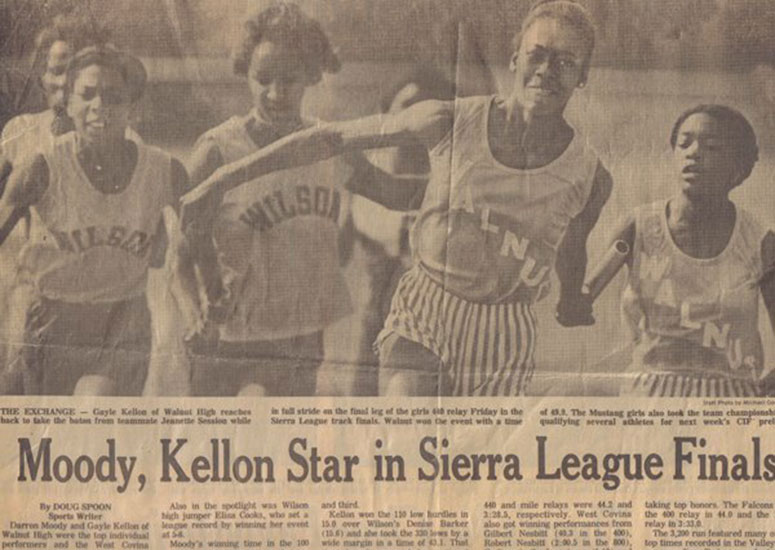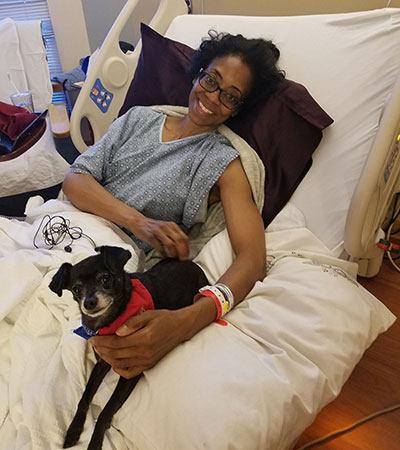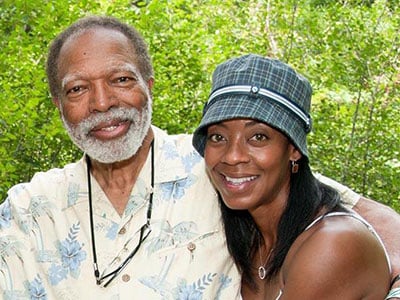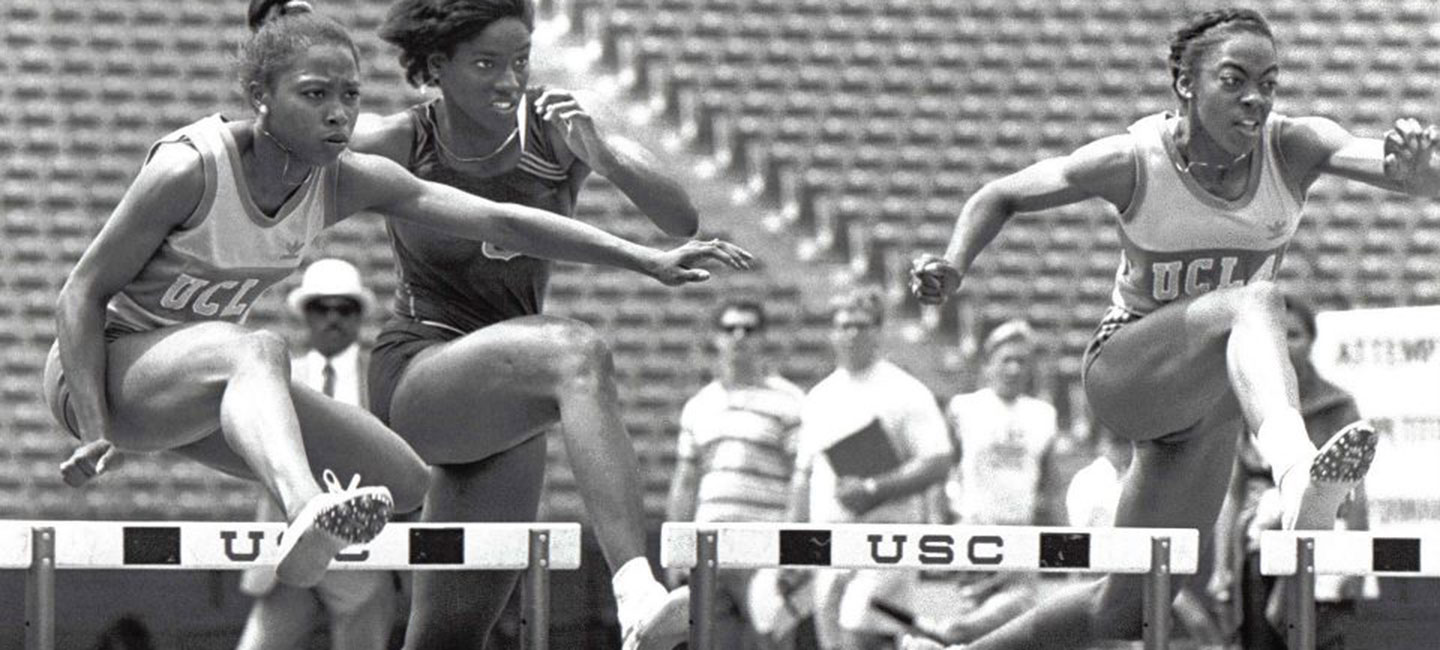Clearing Hurdles
Gayle Kellon Christensen has always worked to tackle life’s hurdles, literally. In high school, she was a two-time track state champion in the 300-meter hurdles. She continued her career at UCLA where she set national records and ran in the Olympic trials in 1984 and 1988. She made it to the finals the second time, but finished just a few spots shy of making the Olympic team.

California newspaper clipping shows Christensen's success as a young runner.
When Christensen was diagnosed with cancer decades later, she brought the same intensity to her fight as she did to the track.
“I knew my athletic background was going to be a big help,” said Christensen. “No question, I wouldn’t be as healthy and strong if it wasn’t for the base of strength I built over my lifetime. And if nothing else, it gave me that mental edge.”
Christensen started experiencing diarrhea in 2011, but attributed it to stress from going through a divorce. Two years later, after moving to Tampa, a mammogram and ultrasound showed tumors in both of her breasts. It was a diagnosis Christensen dreaded since her mother passed away from breast cancer in 1989.
“It was always in the back of my mind,” said Christensen. “My mom died of breast cancer, so what am I going to do if that happens to me?”

Christensen poses after an operation in 2018.
Christensen chose to have a double mastectomy but after surgery, scans showed a neuroendocrine tumor in her small bowel that had metastasized to her breasts and the mesentery, a continuous set of tissues in the abdomen.
At the end of 2013, surgeons at Moffitt Cancer Center removed as much cancer as they could from Christensen’s small bowel. When her disease progressed the following year, she was enrolled on a clinical trial for a now-FDA approved treatment called peptide receptor radionuclide therapy. When injected into a patient, the treatment binds specifically to neuroendocrine tumor cells, delivering a high dose of targeted radiation to the cancer.
Christensen initially responded well to the treatment, but developed a new liver lesion in 2018. Over the course of the next few months, she had multiple surgeries to try and remove as much cancer as possible. In 2019, she received two more doses of the radionuclide therapy.

Christensen with her father
As a result of all her surgeries, Christensen experienced debilitating gastrointestinal side effects. She also lost her father in 2019 to the same cancer she was battling. She turned to her faith and exercise to pull her through.
“Feeling better is worth fighting for,” said Christensen. “Everything is out of control — your scans and you don’t know what is going to happen — but moving is in your hands whether it’s visualizing you getting out of bed or actually trying to. Being active just makes yourself feel better.”
After the recommended surgery recovery time, Christensen would start walking and build from there. Slowly, she started to feel better, not only physically, but also mentally. “I started to realize I can do this,” she said. “This is what I have trained for my entire life. I got this. There is no other alternative.”
Today, Christensen’s cancer is stable and she says her digestive system feels as close to normal as it has in years. She still refuses to say the “c word,” referring to it only as the diagnosis. “I don’t claim it, it’s not welcome here,” she said. “This is what I have to deal with, but I am not going to say it’s mine and I am always hopeful for a cure.”
Feeling better than she has in a long time, Christensen is back to routine running and lifting. She is focusing on staying positive and is hopeful that one day cancer will just be another hurdle she has soared over.



